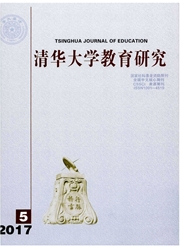

 中文摘要:
中文摘要:
本文利用2009年全国高校毕业生就业调查数据,通过建立条件逻辑斯特模型,考察了高校毕业生在面临全国31个省(自治区、直辖市)时所做出的就业地选择与其生源地和院校地之间的关系,并通过计量手段对因自选择偏好所带来的偏差进行了调整.研究发现:在控制地区及个人基本特征的情况下,毕业生更倾向于选择在生源地就业;且毕业生在哪里就学也会增加他们毕业时留在当地就业的可能性.“211”重点高校毕业生、研究生更倾向于离开生源地就业,且更倾向于留在院校地就业.因此,在制定引导大学生就业流动方向的政策时,应充分考虑所面向的对象的特点以及可能产生的影响.此外,也应充分重视地区高等教育发展水平对大学生流动的引导作用,逐步缩小经济欠发达地区与经济发达地区之间在高等教育规模和层次上的差异.
 英文摘要:
英文摘要:
Based on a national-scale survey on college graduates' employment conducted in 2009, the paper analyzes the relationship between university graduates' work place, university place and birth place, with the Conditional Logistic Model. It is found that university graduates tend to stay in their birth places or university places for work, controlling for the variables of economy, higher education and personal characteristics. Those who graduate from Project 211 universities or receive masters' or doctorate degrees are more likely to leave their birth places andstay in their university places for work than those who graduate from non-211 universities or receive bachelors' or associate degrees. In order to balance the distribution of university graduates and improve the efficiency of human resources, the existing segments of the labor market should be broken as soon as possible and meanwhile, more emphasis should be attached to the distribution of higher education.
 同期刊论文项目
同期刊论文项目
 同项目期刊论文
同项目期刊论文
 期刊信息
期刊信息
